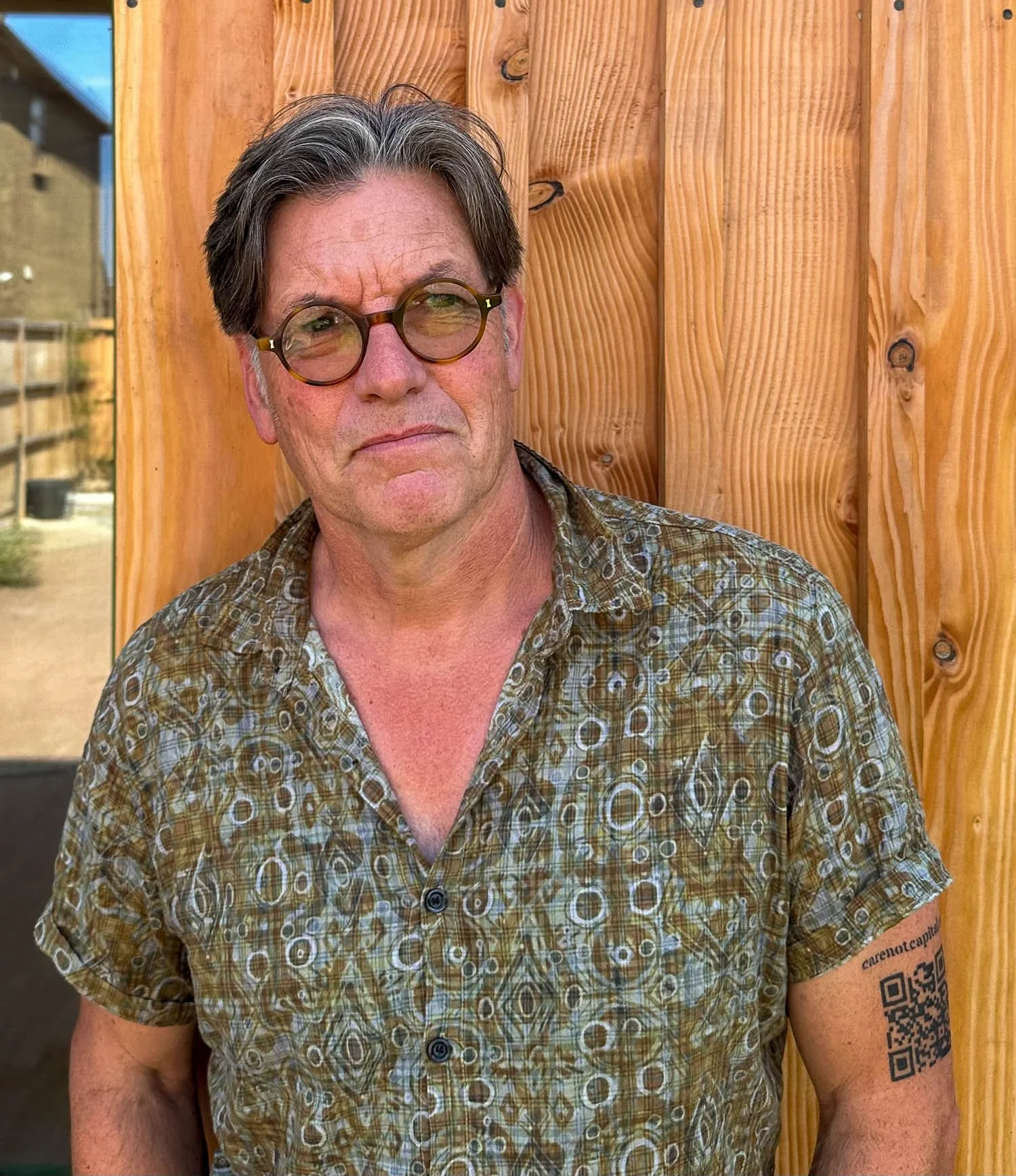JOHN LITTLE BIO
John Little has been reimagining what urban nature can be since founding the Grass Roof Company in 1998. Over the past 25+ years, John has designed and built more than 400 small green-roof structures and various other species-rich planting with walls engineered for nesting, hibernation, and year-round habitat.
His nonprofit Care Not Capital pushes for a fundamental shift to redirect funds from one-off capital projects toward ongoing, human-powered stewardship that benefits both biodiversity and communities.
Here are the core ideas John argues for—putting the best gardeners in the poorest places, moving money from capital into care, understanding that gardened places are best for biodiversity and people, moving novel landscapes higher up the Biodiversity Net Gain (BNG) metric, understanding that a modern public space gardener is much more than a horticulturist, keeping waste on site and using it to make places beautiful and biodiverse, and putting soil and plants on roofs.
You can connect with John on Instagram at @grassroofco and @carenotcapital and support Care Not Capital here.
SHOW NOTES WITH APPROXIMATE TIME STAMPS
(00:00) Introduction
(01:00) Early influences and growing up with a permaculturist grandfather and in post-industrial landscapes
(03:00) From retail to professional horticulture without formal training
(04:00) The shift from native plants to wildlife and habitat creation
(05:00) Green roof experimentation and breaking free from conventional substrate wisdom
(08:00) Topography as an underplayed design tool
(10:00) Effects of putting substrate on top of soil
(13:00) The art of seeing landscapes
(17:00) The importance of ruderal vegetation and hand weeding for biodiversity
(19:00) Care Not Capital and investing in gardeners instead of infrastructure
(22:00) Lessons from social housing and listening to residents over imposing ideas
(25:00) Free training for gardeners in community engagement, ecology, and green infrastructure
(28:00) Creating structural habitat with dry stone walls, cob buildings, and dead wood
(33:00) Redesigning horticulture education
(37:00) Valuing bare ground and the importance of entomologists in design
(40:00) Balancing ecology with aesthetics while making it beautiful for humans and wildlife
(44:00) Working in poorest communities and why green space investment matters most there
(49:00) Practical advice for home gardeners on working with subsoil and alternative substrates
(54:00) Managing lawns, dead trees, and organic debris for habitat
(58:00) Bee hotels and using gabions as multifunctional habitat structures
(64:00) Thoughts on bringing materials onto a site
(68:00) Recommended reading of Rebirding and Cornerstones Benedict Macdonald and understanding natural European habitats
(69:00) Thinking about climate change and succession in design
(71:00) How to propagate more gardeners by making them celebrities and funding good jobs
(73:00) You can connect with John on Instagram at @grassroofco and @carenotcapital and support Care Not Capital here.







